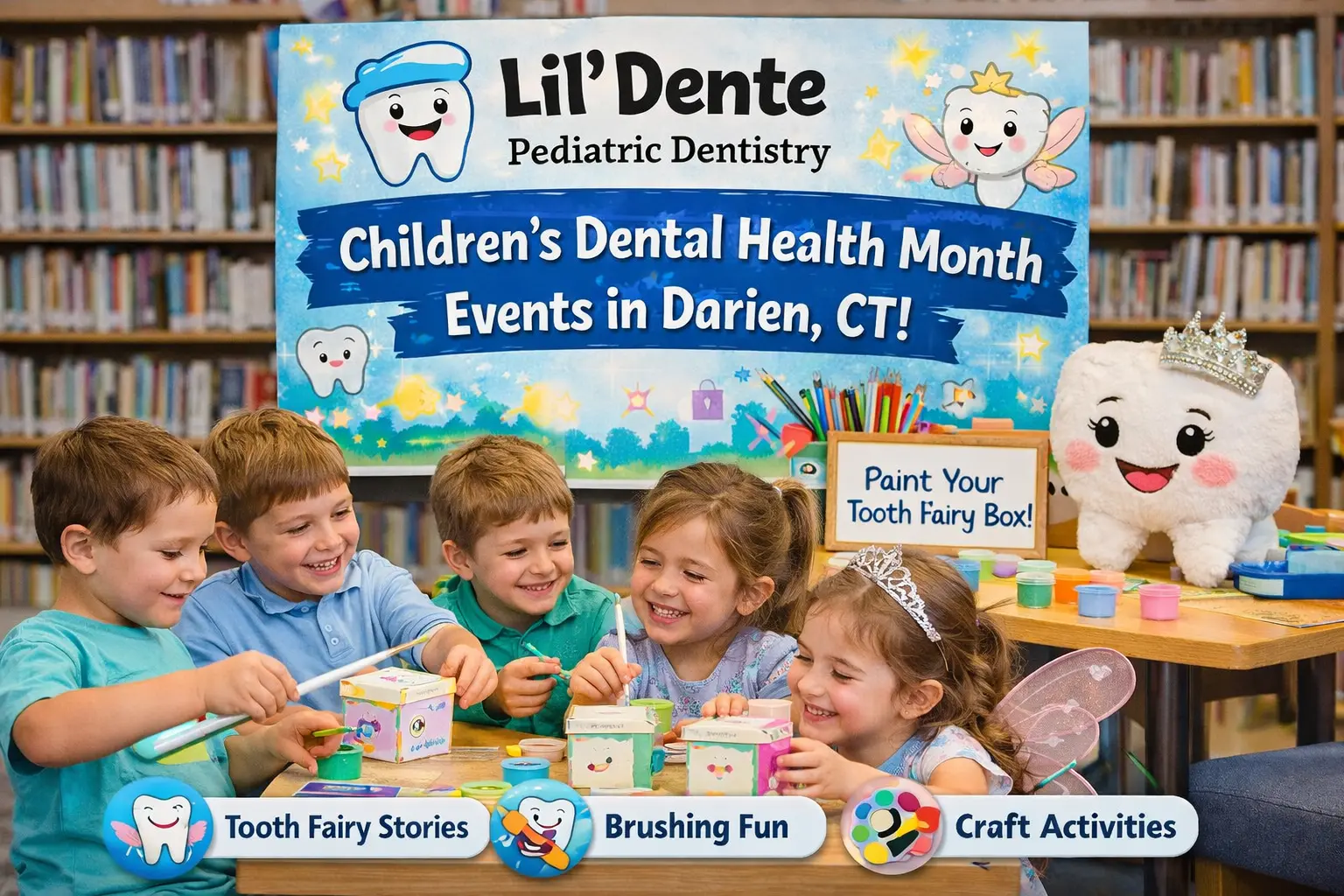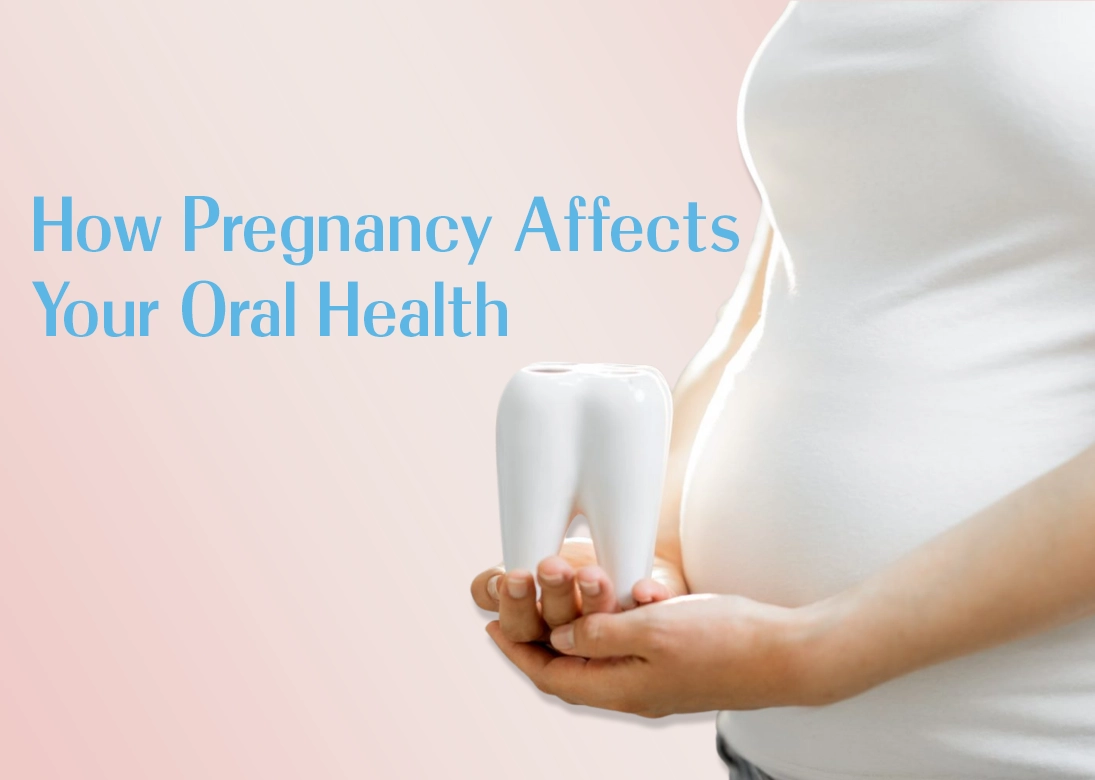Baby teeth, also known as primary teeth, may seem temporary and insignificant, but they play a substantial role in a child's early development. These teeth typically start to appear around six months of age, marking an essential milestone in a child's growth.
Their importance extends far beyond the ability to chew food. They are integral to speech development, serve as placeholders for permanent teeth, and set the stage for lifelong oral health.
This blog post will delve into the functions of baby teeth, their impact on oral health, the potential consequences of neglecting them, and how best to care for them. We aim to underscore the importance of these primary teeth and emphasize the impact of early dental care on overall oral health.
The Functions of Baby Teeth
Primary teeth, often referred to as baby teeth, hold a vital role in the growth and development of a child. They serve multiple important functions that contribute significantly to a child's overall development.
Firstly, baby teeth are crucial for eating and nutrition. They help children chew food effectively, enabling them to digest and extract necessary nutrients. This assists not only in their physical growth but also in their cognitive development.
Secondly, baby teeth influence speech development. Proper pronunciation and articulation of certain sounds and words require the presence of these teeth. Thus, they play an integral role in a child's ability to communicate effectively.
Lastly, baby teeth act as placeholders for permanent teeth. They guide the growth and position of the ensuing adult teeth, aiding in their proper alignment. This fundamental function ensures that the adult teeth will have suitable space for growth, reducing the risk of crowding or misalignment.
In essence, the importance of baby teeth extends far beyond their temporary lifespan in a child's mouth. They pave the way for a child's nutritional, communicative, and dental health, underscoring the importance of their proper care and maintenance.
Baby Teeth and Oral Health
The well-being of baby teeth is intrinsically linked to overall oral health, setting the foundation for a child's lifelong dental wellness. Decay or damage to these primary teeth can significantly impact the health of emerging permanent teeth. If a baby tooth is lost prematurely due to decay, the nearby teeth may encroach upon the vacant space, causing misalignment when the permanent tooth tries to erupt. This could lead to a higher risk of requiring orthodontic treatments in the future.
Besides, the health of baby teeth directly affects the condition of the gums. Infections or gum diseases can start in primary teeth and potentially spread, damaging the adult teeth developing beneath them. Moreover, severe decay in baby teeth could lead to painful dental abscesses, which might result in overall discomfort and difficulty in eating, speaking, and concentrating.
Therefore, maintaining the health of baby teeth is not only important for their immediate functionality but also for the long-term oral health of the child. Regular dental check-ups, good oral hygiene habits, and a balanced diet are essential elements in preserving the health of these vital placeholders. It is important to remember that the care we instill in these primary teeth sets the precedent for the health of the permanent teeth to follow.
Consequences of Neglecting Baby Teeth
Neglecting the care of baby teeth can result in numerous detrimental consequences that extend beyond dental health. The neglect can lead to cavities which not only cause discomfort and pain but could also affect the child's overall development and quality of life.
Children suffering from dental pain may have difficulty concentrating in school, potentially impacting their academic performance. They might also face challenges in basic daily activities, such as eating and speaking, due to pain or discomfort. Chronic dental problems can impede proper nutrition, leading to growth issues and other health problems.
Untreated cavities in baby teeth can lead to more serious complications like dental abscesses. These abscesses are painful, filled with pus, and if left unaddressed, can lead to systemic infections.
Moreover, the early loss of baby teeth due to decay can cause alignment issues in permanent teeth, resulting in the need for orthodontic treatments. It can also lead to poor self-esteem in children, as they might feel self-conscious about their appearance.
In conclusion, it is essential to remember that the neglect of baby teeth can have far-reaching implications for a child's overall health, well-being, and development. As such, parents and caregivers must prioritize regular dental check-ups, implement good oral hygiene routines, and maintain a healthy diet for their children.
Caring for Baby Teeth
Establishing a proper dental hygiene routine early on is critical for the health of baby teeth. It is recommended to start cleaning a baby's mouth even before their first tooth appears. Parents can use a soft, clean cloth to gently wipe the baby's gums after each feeding.
Once the baby's teeth start to erupt, it's time to introduce a baby toothbrush. Choose one with a small, soft-bristled brush to comfortably fit the child's mouth. Use a tiny smear of fluoride toothpaste, about the size of a grain of rice, for children under three years old. For children aged 3 to 6, a pea-sized amount of fluoride toothpaste can be used.
It's important to brush your child's teeth twice a day, in the morning and before bed. Parents should supervise or assist with brushing until they're confident that their child can do it effectively on their own, usually by the age of 6 or 7.
Regular dental check-ups should also be part of the child's routine, starting from their first birthday or when their first tooth erupts. Dentists will not only check for cavities but also teach parents effective ways to keep their child's teeth clean.
Lastly, maintaining a healthy diet low in sugar will limit the risk of cavities. Encourage children to drink plenty of water and avoid sugary drinks. Fruits, vegetables, and dairy products are excellent for maintaining dental health as they provide the necessary nutrients for strong and healthy teeth.
In essence, the care of baby teeth requires a combination of proper hygiene, regular check-ups, and a healthy diet. By instilling these practices early, parents and caregivers can aid in their children's overall dental health and well-being.
Conclusion
In conclusion, primary teeth are crucial to a child's overall health and development. They pave the way for healthy adult teeth while playing a significant role in their speech development and nutrition.
At Lil' Dente, we're committed to ensuring your little one's smile stays bright and full of joy. We offer personalized, gentle dental care for children in Darien, Stamford, New Canaan, Norwalk, and surrounding areas. It's never too early to start, so why wait?
Book an appointment with us today by calling 203-309-0312 or clicking here to schedule your visit. We can't wait to meet you and your kiddo - we promise you won't regret it :)
Frequently Asked Questions
Why are baby teeth important if they eventually fall out?
Baby teeth play a critical role in a child’s development even though they are temporary. They help children chew food properly for good nutrition, support correct speech development, and act as placeholders that guide permanent teeth into proper alignment. When baby teeth are healthy, they reduce the risk of crowding, misalignment, and future orthodontic problems.
How do baby teeth affect my child’s long-term oral health?
The health of baby teeth directly impacts the development of permanent teeth and the surrounding gums. Decay or infection in primary teeth can spread to the underlying adult teeth, increasing the risk of long-term dental issues. Maintaining healthy baby teeth helps create a strong foundation for lifelong oral health and reduces the likelihood of complex treatments later.
What happens if baby teeth are neglected or lost too early?
Neglecting baby teeth can lead to cavities, infections, and early tooth loss, which may cause pain, difficulty eating, and speech problems. Premature loss of baby teeth can allow nearby teeth to shift, leaving insufficient space for permanent teeth. This often results in alignment issues that may require orthodontic treatment in the future.
When and how should parents start caring for baby teeth?
Oral care should begin even before the first tooth appears by gently cleaning the gums with a soft cloth. Once teeth erupt, parents should brush twice daily using a soft toothbrush and an age-appropriate amount of fluoride toothpaste. Supervision is important until children can brush effectively on their own, usually around age six or seven.
How do regular dental visits help protect baby teeth?
Regular dental visits allow early detection of cavities, infections, and developmental concerns before they become serious. Pediatric dental check-ups also provide parents with guidance on proper brushing, diet, and preventive care. Starting dental visits early helps children feel comfortable at the dentist and supports healthy habits that last into adulthood.














.svg)
.svg)

.svg)